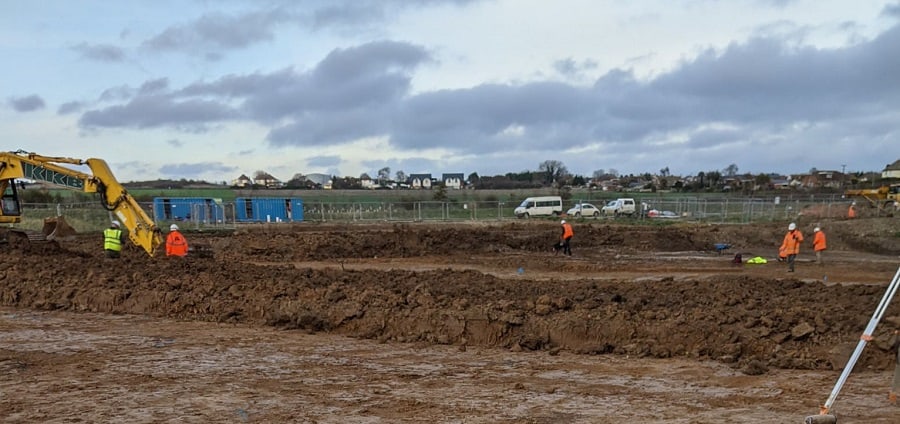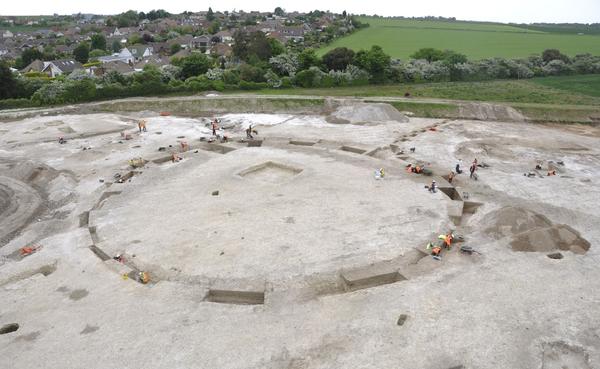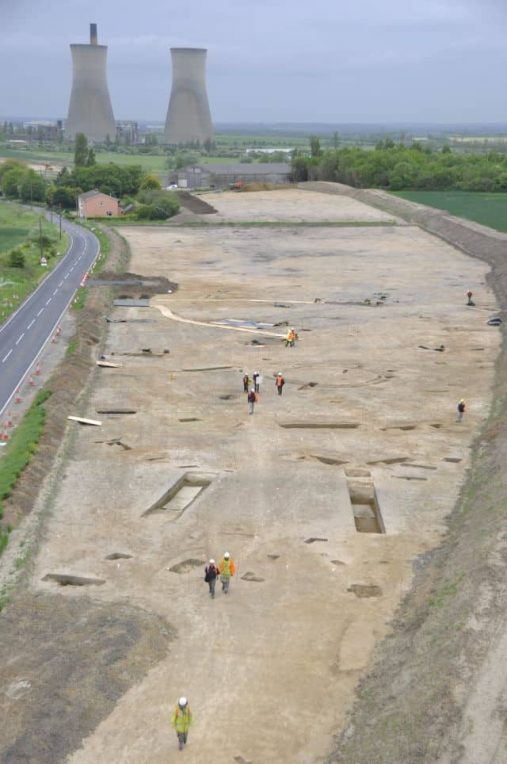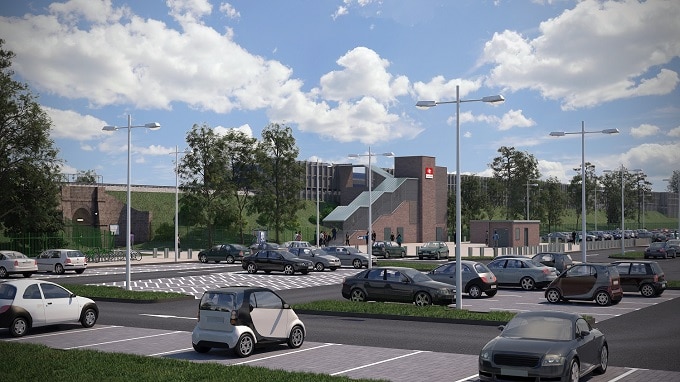
Canterbury Archaeological Trust has started excavation by Cliffsend where the new Thanet Parkway Station will be sited.
As part of the planning process, excavations will take place in advance of the Thanet Parkway construction. This will help to record the archaeology for future generations.
The initial phase of the works will involve the careful recording and removal of archaeology. This will start with the use of mechanical excavators to remove plough soil and reveal archaeological horizons.

A page dedicated to dig updates says: “We expect to find Iron Age enclosure ditches, rubbish pits and trackways at the site, as surrounding areas have been found to have lots of archaeological settlements and field systems related to farming. We hope that these findings will tell us more about what prehistoric life was like.
“We know from previous investigations that there was a large Iron Age site on Hengist Way which was bordered by a substantial hollow-way (a track). This originated in the Bronze Age and eventually went out of use in the Romano-British period.
“The feature and much of the settlement activity is known to extend across the Parkway site and to the south toward Cottington Road. Cremations and burials have also been found to the north and west, dating to the Iron Age and Romano-British. Whilst Anglo-Saxon or medieval remains are less likely to be found, there is however evidence of an Anglo-Saxon building nearby.”

The district has seen significant events in British history including:
- raids by Caesar
- the arrival of the Romans and their departure through Richborough
- the arrival of the Anglo-Saxons Hengist and Horsa
- the mission of St Augustine.
From investigations, studies have been able to delve deeper into its history. They included:
- an excavation in advance of the East Kent Access Road (Hengist Way in particular)
- an excavation of the Margate to Weatherlees pipeline
- the findings of significant remains at Cliffsend Farm Cottages, Ramsgate Harbour Approach road and Thanet Earth.
A booklet – Digging at the Gateway – from prehistory to Caesar and beyond – charts evidences from centuries of history in Thanet unearthed during the construction of the second phase East Kent Access road.
For thousands of years East Kent has been a gateway for new peoples, new cultures, new ideas and for trade. Kent County Council’s construction of the new road link provided a rare opportunity to undertake large-scale investigations of this important archaeological landscape.
Thanet, effectively an island from the Early Bronze Age until the 15th century AD, is now joined to the mainland following the silting up and reclamation of the Wantsum Channel.
The Oxford Wessex Archaeology (OWA) joint venture project, at times involving over 150 archaeologists, undertook a series of excavations, covering 48 hectares, along the 6.5-kilometre route of the new road. This work, the biggest archaeological excavation in the UK in 2010, revealed a wealth of evidence spanning the Palaeolithic to the Second World War.

Prehistoric highlights during that project included 11 Bronze Age ring ditches − the largest possibly originating as a Late Neolithic hengiform monument, two Late Bronze Age metalwork hoards and a unique Early−Middle Iron Age trapezoidal enclosure − most likely a high status settlement or sanctuary.
The discovery of a large, ditched enclosure of mid-1st century BC date on the Ebbsfleet peninsula was probably the most significant of the entire EKA project, revealing a probable link to Julius Caesar.
Evidence for subsequent Romano-British settlement and burial was extensive, while two early Saxon cemeteries and a rare Mid-Saxon settlement represent further important discoveries.
Read more about Digging at the Gateway here
Surrounding site studies have also found:
- a Mesolithic flint axe
- Neolithic pits (containing burnt hazelnuts)
- a small Bronze Age settlement, showing that the area has been occupied by humans for over 10,000 years.
The Parkway excavation is due to finish in March 2021 but there will be events happening through into 2022 as part of the post-excavation process.

Controversial plans to create a multi-million pound train station in Thanet were approved by county councillors in September.
The £34million Thanet Parkway Station has spiralled in cost from an initial £11.2 million.
The 9.27 hectare greenfield site will accommodate an unmanned station for up to six trains an hour, along with a 317-space car park and a new signalised junction to provide access for vehicles onto the A299 Hengist Way.
Find the Canterbury Archaeological Trust on facebook here

